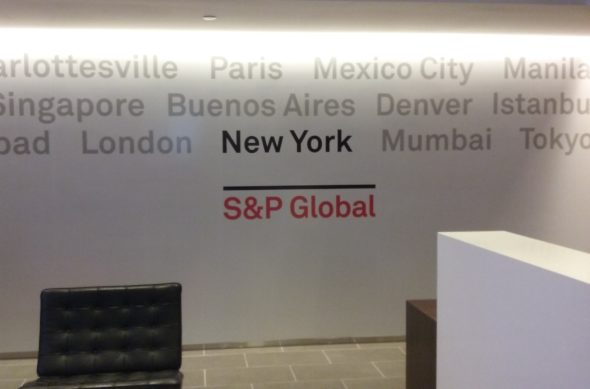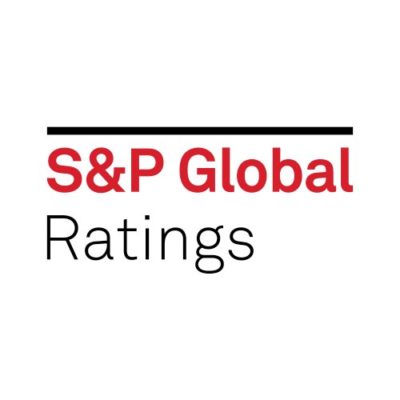We began the day of May 16 at 8am, gathering in the Cornell Conference room. After enjoying a hearty breakfast, we and our classmates prepared ourselves for a day of hardcore learning.
Our first guest lecturer for the day was from Anheuser-Busch InBev (AB InBev). The speaker began his presentation by briefly introducing the history of AB InBev and the beer industry. He differentiated the beer industry into three different tiers: brewers, wholesalers, and retailers, and focused the rest of his speech on the role of a wholesaler. We were all interested in the recent large merger deal by the company: in 2015, Anheuser-Busch Inbev executed the largest-ever beer deal, a $107 billion takeover of SABMiller, with a record $75 billion syndicated loan–the largest commercial loan in the history of the global loan markets. We then learned more about the deal and explained the reasons behind the highly leveraged deal structure.

After opening questions to the floor, our class discussed and explored probable problems that AB InBev may face in the future. For example, due to regulations within certain states in the US, AB InBev may not be allowed to further increase its market share through acquisition deals or expand its value chain through vertical integration. Using his experience at AB InBev, the speaker was able to effectively demonstrate the difference between strategic and financial buyers in acquisition deals; more focus is placed on the identification and realization of business synergies.
 Our second speaker for the day was a representative from the Port Authority of New York & New Jersey. The Port Authority is a self-sustaining entity that builds, operates, and maintains critical public transportation and infrastructure.
Our second speaker for the day was a representative from the Port Authority of New York & New Jersey. The Port Authority is a self-sustaining entity that builds, operates, and maintains critical public transportation and infrastructure.
The speaker began his presentation by showing us a graph depicting the recent breakdown in correlation between distance traveled by automobile and the country’s Gross Domestic Product (GDP). This demonstrated the inherent uncertainty in public infrastructure investment projects–such as whether heavy investments in expensive projects should be underutilized or rendered obsolete within a short period of time due to divergence from historical correlation, perhaps due to disruptive technology.
Continuing on the auto traffic situation in New York as a case study, the speaker discussed certain factors, such as behavioral and demographic trends, that should be considered and included within an econometric model. Lastly, he finished his conclusions by showing us his future predictions for auto traffic trends in New York and New Jersey. A warning was included in his conclusion: econometric models tend to be based on historical information, and actual outcomes may deviate from model projections due to regime changes, so analysts must be careful when interpreting results from such models. The presentation was very informative and gave us a glimpse of the difficulties faced when planning public infrastructure investment projects, especially for metropolitan cities like New York.
 Our next speaker was from Hillview Capital Advisors LLC. Hillview Capital Advisors is a premier provider of financial advisory services to high net worth individuals, their families, and foundations. We learned about the role that boutique financial advisory firms, such as Hillview Capital Advisors, play within the finance and private wealth management industry. The company aligns its interest with that of its clients by adopting a compensation structure based on assets under management (AUM) instead of through deal commissions. By acting as an independent investment advisor to their clients, Hillview Capital assists their clients to better meet their investment objectives, subjected to their unique background and circumstance, by optimizing their portfolio asset allocation. The presentation included a period of discussion between the speaker and students regarding the rise of robo-advisors and how the private wealth investment advisory industry can retain its relevance in the future.
Our next speaker was from Hillview Capital Advisors LLC. Hillview Capital Advisors is a premier provider of financial advisory services to high net worth individuals, their families, and foundations. We learned about the role that boutique financial advisory firms, such as Hillview Capital Advisors, play within the finance and private wealth management industry. The company aligns its interest with that of its clients by adopting a compensation structure based on assets under management (AUM) instead of through deal commissions. By acting as an independent investment advisor to their clients, Hillview Capital assists their clients to better meet their investment objectives, subjected to their unique background and circumstance, by optimizing their portfolio asset allocation. The presentation included a period of discussion between the speaker and students regarding the rise of robo-advisors and how the private wealth investment advisory industry can retain its relevance in the future.
The presentation was both entertaining and enriching; we were able to learn more about the private wealth management industry as well as the possible near term challenges it may face due to the rise of Financial Tech (Fin Tech).
After finishing the three presentations in the morning, we stopped for a short lunch break to replenish our energy and consolidate the lessons we had learned. We then made our way to the New York headquarters of Standard & Poor’s (S&P) Global.

S&P Global is the parent company for S&P Global Ratings, S&P Global Market Intelligence, and S&P Global Platts. S&P is most well-known for its independent investment research and it is the largest and most well-known ratings agency in the world. The presentation at the firm was done by four directors in different departments, and the content covered was mostly focused on the corporate credit ratings area.
After briefly introducing the background and history of S&P Global, the directors walked us through the corporate credit rating issuance process. Subsequently, the students engaged in a lively discussion with the directors on a wide range of topics, including the role played by credit rating agencies in the global financial crisis, the steps taken to improve operational processes since then, the ways to determine the willingness of issuers to meet their debt obligations when they have the ability to do so, and how the apparent conflict of interest from issuer-paid ratings is mitigated/controlled. The presentation was very insightful and students were able to better understand the analysis and due diligence required when issuing corporate credit ratings.

Jason Wang, BSBA’09
Lastly, following the conclusion of the S&P Global presentation, we made our way to the main branch of Xi’an Famous Food, located on 34th street and Madison Avenue, for our final presentation of the day. The founder of Xi’an Famous Food, Jason Wang, is an alumnus of Olin Business School, BSBA’09. Upon completing his undergraduate studies at WashU, Jason joined his father to help grow the family restaurant business.
During our visit to the main branch of Xi’an Famous Food, Jason was very hospitable and he provided food and drinks to everyone. After ensuring that everyone was comfortable, he shared his experience as an entrepreneur and the difficulties he faced when growing his business. The courage, conviction, and resilience that he has demonstrated thus far in his entrepreneurial journey is exemplary. The most memorable advice he shared is that when running a business, an entrepreneur should never let himself do everything; it is equally important to learn how to trust and delegate important tasks to other people.

All in all, we covered a wide range of subjects and topic areas today. We had a great learning experience and we look forward to even more learning opportunities over the next few days.
Guest Bloggers: Tiantian Hao, Renjun Li, Chenyu Wu, Ming Da Zhuang (GMF 2017)
This is a series of blogs chronicling the experiences of 42 Global Master of Finance (GMF) dual degree students during their two week immersion course in New York and Washington, DC. Each blog will be written by a small subset of students during their experience. Names of speakers and presenters at firms are anonymous at the request of the firms and course organizers.




 In the afternoon, we went to
In the afternoon, we went to  (Director in US Public Finance), and James Fielding (Senior Director in Corporate and Government Ratings).
(Director in US Public Finance), and James Fielding (Senior Director in Corporate and Government Ratings).


